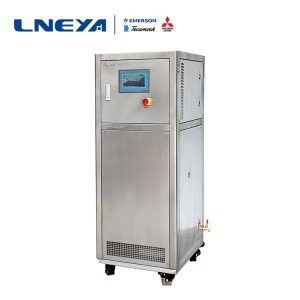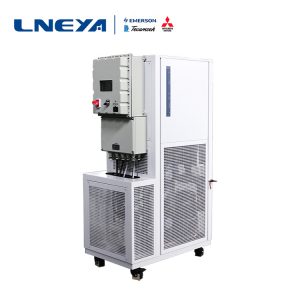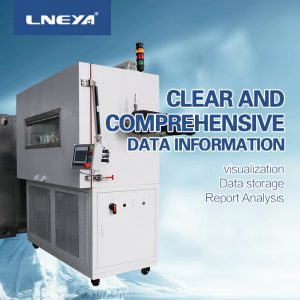Enger Kontakt zwischen neuen Energiefahrzeugen und LNEYA-Batterietest-Temperaturreglern
Based on the current situation of energy issues and the booming development of the automotive industry, new energy vehicles are as timely as the modern automotive industry. The battery part of the new energy vehicle plays a decisive role in the performance of the new energy vehicle. Therefore, the LNEYA battery test temperature control unit can effectively improve the performance of new energy vehicles and the satisfaction of users.
For new energy vehicle battery testing, battery safety and stability are especially important, working with batteries to ensure safety. Therefore, it is necessary to test the battery of the new energy vehicle in various environments to ensure its normal and stable operation, and thus the vehicle operation reaches a certain safety and actual driving requirements.
In the process of R&D, LNEYA battery test temperature control unit gathers its own advantages in the field of refrigeration and heating temperature control, and cooperates with the division of labor to study the temperature control equipment that meets the test of new energy vehicle battery motor. After the hard work of all the researchers, LNEYA launched a new energy battery/motor temperature control system in 2014, which is highly anticipated by the market, greatly improving the efficiency of testing, saving economic benefits for the new energy automobile industry, and re-upgrading in 2016. The new energy battery/motor temperature control system adds a solid foundation. With the second generation of new products being well received by the market, the third generation of new energy battery/motor temperature control system in 2018 is also in the process of R&D, test and production.
The production and sales of battery test temperature control units have broken through the key technical bottlenecks in the production and testing of new energy vehicle battery systems, and have gained the right to speak for LNEYA in the key manufacturing technology field of power battery systems. Many companies in the industry visited and visited to discuss technology transfer and expand the influence of the industry.
LNEYA battery test temperature control unit in the process of testing the new energy vehicle power battery system, combined with the use of the car battery system, the detection program is perfected. At the same time, the LNEYA battery test temperature control unit improves the overall quality of the battery system detection work by improving the detection methods such as battery template detection, battery core detection and test experiments, and improves the operation effect of the energy vehicle power battery system and promotes the automobile industry. Green development.
Therefore, we can see that the development of the LNEYA battery test temperature control unit is also quite promising.
Verwandte Empfehlungen
-
Labor-Kühlgeräte für die Temperaturregelung
1975Laborkühler werden, wie der Name schon sagt, hauptsächlich in Hochschulen und Universitäten, wissenschaftlichen Forschungseinrichtungen und Labors eingesetzt. Speziell für die Kühlung von kleinen Laborgeräten wie Spektrometer, Massenspektrometer, Viskosimeter, Rotations- und...
Details anzeigen -
Die Methode, die kleine wassergekühlte Kältemaschinen beim Befüllen mit Kältemittel befolgen müssen
1715Wir glauben, dass jeder in unserem Leben mit der Kältetechnik sehr vertraut ist. In der zentralen Klimatisierung und der industriellen Produktionsprozesskühlung sind kleine wassergekühlte Kältemaschinen weit verbreitet. Diese Einheit besteht aus einem Kompressor in der ...
Details anzeigen -
Wie wählt man die Ausrüstung für den Reaktor aus?
1275Bei der Auswahl der Ausrüstung für den Reaktor sind folgende Punkte zu beachten: 1. Heizmethode: Im Allgemeinen sollte die elektrische Heizung größer als oder gleich 3 Tonnen sein, und im Falle des äußeren Halbrohrs; weniger als oder gleich 3 bis...
Details anzeigen -
Ethylene glycol refrigeration unit made a strong attack and created LNEYA brand in 12 years
1953Performance enhanced positioning When performing the cooling and heating reaction, in many cases, the refrigerant cannot cool the object to be cooled by itself. Therefore, we need a coolant (or refrigerant) to cool the refrigeration system in a re...
Details anzeigen
 LNEYA Industriekühler Hersteller Lieferant
LNEYA Industriekühler Hersteller Lieferant













